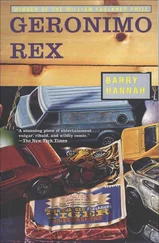“My father has a doctorate in history. She smells of beer.”
I said, “She drank two cans of beer when she heard about Prender.”
“There are a lot of other things to do when you hear about death. What I did, for example. She ran away. She fell to pieces.”
“She’s waiting for us,” I said.
“One damned thing I am never going to do is drink.”
“I’ve never seen your mother up close, but Lilian doesn’t look like your mother. She doesn’t look like anybody’s mother.”
I rode with them silently to Clinton. Lilian made no bones about being disappointed I was in the car, though she said nothing. I knew it would be like this and I hated it. Other girls in town would not be so unhappy that I was in the car with them. I looked for flaws in Lilian’s face and neck and hair, but there weren’t any. Couldn’t there be a mole, an enlarged pore, too much gum on a tooth, a single awkward hair around the ear? No. Memory, the whole lying opera of it, is killing me now. Lilian was faultless beauty, even sweating, even and especially in the white man’s shirt and the bow tie clamping together her collar, when one knew her uncomfortable bosoms, her poor nipples. .
“Don’t take me back to the band room. Turn off here and let me off at my house,” I said to Quadberry. He didn’t turn off.
“Don’t tell Arden what to do. He can do what he wants to,” said Lilian, ignoring me and speaking to me at the same time. I couldn’t bear her hatred. I asked Quadberry to please just stop the car and let me out here, wherever he was: this front yard of the mobile home would do. I was so earnest that he stopped the car. He handed back the keys and I dragged my suitcase out of the trunk, then flung the keys back at him and kicked the car to get it going again.
My band came together in the summer. We were the Bop Fiends. . that was our name. Two of them were from Ole Miss, our bass player was from Memphis State, but when we got together this time, I didn’t call the tenor sax, who went to Mississippi Southern, because Quadberry wanted to play with us. During the school year the college boys and I fell into minor groups to pick up twenty dollars on a weekend, playing dances for the Moose Lodge, medical-student fraternities in Jackson, teen-age recreation centers in Greenwood, and such as that. But come summer we were the Bop Fiends again, and the price for us went up to $1,200 a gig. Where they wanted the best rock and bop and they had some bread, we were called. The summer after I was a senior, we played in Alabama, Louisiana and Arkansas. Our fame was getting out there on the interstate route.
This was the summer that I made myself deaf.
Years ago Prender had invited down an old friend from a high school in Michigan. He asked me over to meet the friend, who had been a drummer with Stan Kenton at one time and was now a band director just like Prender. This fellow was almost totally deaf and he warned me very sincerely about deafing myself. He said there would come a point when you had to lean over and concentrate all your hearing on what the band was doing and that was the time to quit for a while, because if you didn’t you would be irrevocably deaf like him in a month or two. I listened to him but could not take him seriously. Here was an oldish man who had his problems. My ears had ages of hearing left. Not so. I played the drums so loud the summer after I graduated from high school that I made myself, eventually, stone deaf.
We were at, say, the National Guard Armory in Lake Village, Arkansas, Quadberry out in front of us on the stage they’d built. Down on the floor were hundreds of sweaty teen-agers. Four girls in sundresses, showing what they could, were leaning on the stage with broad ignorant lust on their minds. I’d play so loud for one particular chick, I’d get absolutely out of control. The guitar boys would have to turn the volume up full blast to compensate. Thus I went deaf. Anyhow, the dramatic idea was to release Quadberry on a very soft sweet ballad right in the middle of a long ear-piercing run of rock-and-roll tunes. I’d get out the brushes and we would astonish the crowd with our tenderness. By August, I was so deaf I had to watch Quadberry’s fingers changing notes on the saxophone, had to use my eyes to keep time. The other members of the Bop Fiends told me I was hitting out of time. I pretended I was trying to do experimental things with rhythm when the truth was I simply could no longer hear. I was no longer a tasteful drummer, either. I had become deaf through lack of taste.
Which was — taste — exactly the quality that made Quadberry wicked on the saxophone. During the howling, during the churning, Quadberry had taste. The noise did not affect his personality; he was solid as a brick. He could blend. Oh, he could hoot through his horn when the right time came, but he could do supporting roles for an hour. Then, when we brought him out front for his solo on something like “Take Five,” he would play with such light blissful technique that he even eclipsed Paul Desmond. The girls around the stage did not cause him to enter into excessive loudness or vibrato.
Quadberry had his own girl friend now, Lilian back at Clinton, who put all the sundressed things around the stage in the shade. In my mind I had congratulated him for getting up next to this beauty, but in June and July, when I was still hearing things a little, he never said a word about her. It was one night in August, when I could hear nothing and was driving him to his house, that he asked me to turn on the inside light and spoke in a retarded deliberate way. He knew I was deaf and counted on my being able to read lips.
“Don’t. . make. . fun. . of her. . or me. . We. . think. . she. . is. . introuble.”
I wagged my head. Never would I make fun of him or her. She detested me because I had taken out her helpless little sister for a few weeks, but I would never think there was anything funny about Lilian, for all her haughtiness. I only thought of this event as monumentally curious.
“No one except you knows,” he said.
“Why did you tell me?”
“Because I’m going away and you have to take care of her. I wouldn’t trust her with anybody but you.”
“She hates the sight of my face. Where are you going?”
“Annapolis.”
“You aren’t going to any damned Annapolis.”
“That was the only school that wanted me.”
“You’re going to play your saxophone on a boat?”
“I don’t know what I’m going to do.”
“How. . how can you just leave her?”
“She wants me to. She’s very excited about me at Annapolis. William [this is my name], there is no girl I could imagine who has more inner sweetness than Lilian.”
I entered the town college, as did Lilian. She was in the same chemistry class I was. But she was rows away. It was difficult to learn anything, being deaf. The professor wasn’t a pantomimer — but finally he went to the blackboard with the formulas and the algebra of problems, to my happiness. I hung in and made a B. At the end of the semester I was swaggering around the grade sheet he’d posted. I happened to see Lilian’s grade. She’d only made a C. Beautiful Lilian got only a C while I, with my handicap, had made a B.
It had been a very difficult chemistry class. I had watched Lilian’s stomach the whole way through. It was not growing. I wanted to see her look like a watermelon, make herself an amazing mother shape.
When I made the B and Lilian made the C, I got up my courage and finally went by to see her. She answered the door. Her parents weren’t home. I’d never wanted this office of watching over her as Quadberry wanted me to, and this is what I told her. She asked me into the house. The rooms smelled of nail polish and pipe smoke. I was hoping her little sister wasn’t in the house, and my wish came true. We were alone.
Читать дальше












